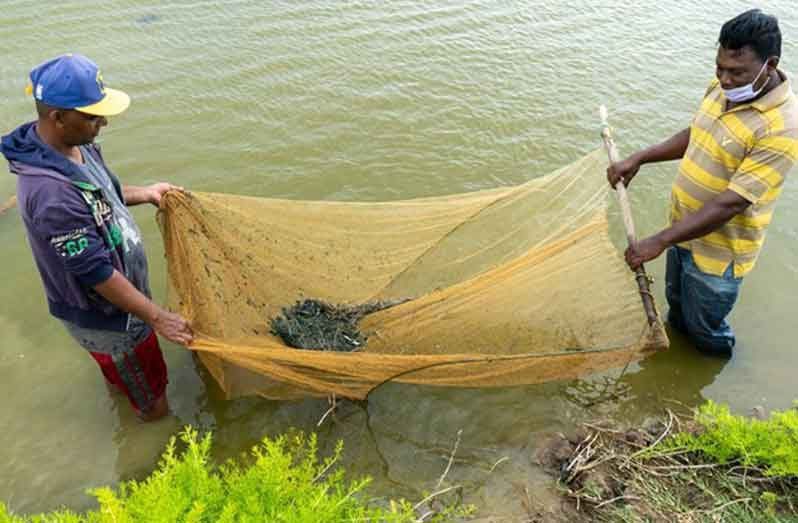THE University of the West Indies (UWI), Faculty of Food and Agriculture (FFA) together with the Food and Agriculture Organization of the United Nations (FAO) officially launched a project entitled “Strategies, technologies, and social solutions to manage bycatch in tropical Large Marine Ecosystem Fisheries (REBYC-III CLME+)” on January 22, 2024, at the Hilton Trinidad and Conference Centre, Port-of-Spain, Trinidad and Tobago.
The US$5.3 million project is funded by the Global Environment Facility (GEF) Trust Fund, implemented by FAO and executed by the UWI FFA.
It is expected to be implemented over a 48-month period in Barbados, Guyana, Suriname, and Trinidad and Tobago.
The objective of the REBYC-III CLME+ project is to manage bycatch and reduce discards in the Caribbean and North Brazil Shelf Large Marine Ecosystems (CLME+) thereby promoting sustainable and responsible fisheries that provide economic opportunities while ensuring the conservation of marine living resources, and in doing so support country implementation of the CLME+ Strategic Action Plan.
In his opening speech of the Project Inception Workshop and first meeting of the Project Steering Committee (PSC), Professor Indar Ramnarine, Deputy Principal, The University of the West Indies, St. Augustine Campus, noted that the region’s target fish stocks were some of the most exploited in the world and some of these fisheries produce high levels of incidental catch of non-target organisms (bycatch) including Endangered, Threatened and Protected species such as marine turtles, marine mammals, sharks and rays and associated high levels of discards.
He said this encroaches on food security and a project of this nature will ensure sustainability of the region’s fisheries.
Dr. Yvette Diei-Ouadi, Fishery and Aquaculture Officer, FAO, underscored the importance of the fisheries and issues to be covered by the project in the context of food and nutrition security, livelihoods for coastal communities and broader economic services.
She noted elevating the effectives of fisheries management was a crucial pillar for the FAO’s Blue Transformation Roadmap.
“Blue Transformation is a targeted effort by which agencies, countries and dependent communities, use existing and emerging knowledge, tools and practices to secure and sustainably maximise the contribution of aquatic food systems to food security, nutrition, and affordable healthy diets for all. It builds on existing successes while providing a framework to overcome sustainability challenges,” she said.
Dr. Simone Titus, Chief Technical Officer, Ministry of Agriculture, Land and Fisheries (Trinidad and Tobago), said the project is a vivid reflection of the global commitment embodied in the United Nations Sustainable Development Goals (SDGs), emphasising the conservation and sustainable use of the region’s oceans and marine resources while promoting sustainability in fishing practices and the reduction of waste.
“The REBYC-III CLME+ project signifies a transformative approach to marine conservation and sustainable use. I am particularly encouraged by the project’s comprehensive approach.
Tackling the barriers of limited technology, governance challenges, and the need for behavioural change is a testament to the holistic thinking that drives this project. It is this kind of innovation and foresight that will steer us towards a more sustainable and equitable use of our marine resources,” she added.
Dr. Titus also emphasised that community engagement and knowledge dissemination were key pillars of this project whereby local fishers, industry participants, and stakeholders will be empowered to build a resilient, informed community ready to embrace the challenges and opportunities of marine resource management.
The hybrid workshop and meeting were attended by 28 in-person and 37 on-line National Focal Points and heads of the national fisheries administrations of the project’s participating countries, representatives from partner organisations and other regional and international stakeholders.
The PSC reviewed and approved the project’s first year work plan and budget of approximately US$1.59 million, as well as Terms of Reference for the committees that will provide technical, policy and management direction and oversight for implementation of activities. (FAO)



.jpg)











